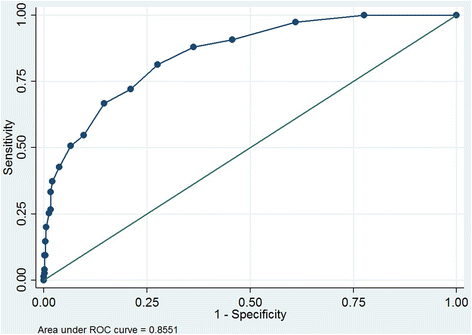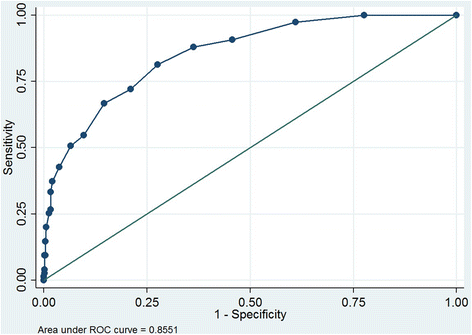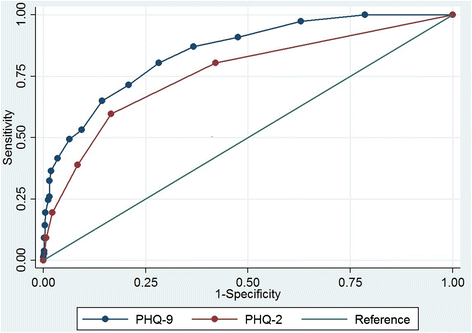The validity of the Patient Health Questionnaire for screening depression in chronic care patients in primary health care in South Africa
- PMID: 26001915
- PMCID: PMC4446842
- DOI: 10.1186/s12888-015-0503-0
The validity of the Patient Health Questionnaire for screening depression in chronic care patients in primary health care in South Africa
Abstract
Background: People with chronic health conditions are known to have a higher prevalence of depressive disorder. The Patient Health Questionnaire (PHQ-9) is a widely-used screening tool for depression which has not yet been validated for use on chronic care patients in South Africa.
Methods: A sample of 676 chronic care patients attending two primary health facilities in North West Province, South Africa were administered the PHQ-9 by field workers and a diagnostic interview (the Structured Clinical Interview for DSM-IV) (SCID) by clinical psychologists. The PHQ-9 and the PHQ-2 were evaluated against the SCID, as well as for sub-samples of patients who were being treated for HIV infection and for hypertension.
Results: Using the SCID, 11.4 % of patients had major depressive disorder. The internal consistency estimate for the PHQ-9 was 0.76, with an area under the receiver operator curve (AUROC) of 0.85 (95 % CI 0.82-0.88), which was higher than the AURUC for the PHQ-2 (0.76, 95 % CI 0.73-0.79). Using a cut-point of 9, the PHQ-9 has sensitivity of 51 % and specificity of 94 %. The PHQ-9 AUROC for the sub-samples of patients with HIV and with hypertension were comparable (0.85 and 0.86, respectively).
Conclusions: The PHQ-9 is useful as a screening tool for depression among patients receiving treatment for chronic care in a public health facility.
Figures
References
-
- Murray CJ, Vos T, Lozano R, Naghavi M, Flaxman AD, Michaud C, Ezzati M, Shibuya K, Salomon JA, Abdalla S, et al. Disability-adjusted life years (DALYs) for 291 diseases and injuries in 21 regions, 1990–2010: a systematic analysis for the Global Burden of Disease Study 2010. Lancet. 2012;380(9859):2197–223. doi: 10.1016/S0140-6736(12)61689-4. - DOI - PubMed
-
- Ziegelstein RC, Fauerbach JA, Stevens SS, Romanelli J, Richter DP, Bush DE. Patients with depression are less likely to follow recommendations to reduce cardiac risk during recovery from a myocardial infarction. Arch Intern Med. 2000;160(12):1818–23. doi: 10.1001/archinte.160.12.1818. - DOI - PubMed
Publication types
MeSH terms
Grants and funding
LinkOut - more resources
Full Text Sources
Other Literature Sources




